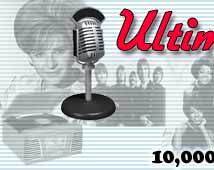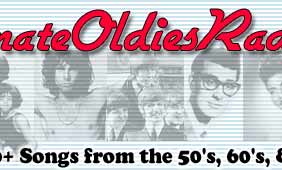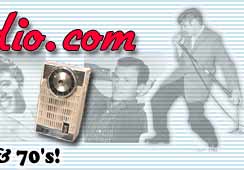 |
 |
 |
 |
 |
 |
|
[ Back to the listing ]
[ Post Reply ]
[ Help ]
[ Search ]
[ List All Forums ] |
|
Subject: Will Radio Ever Get It Right? |
|
Will Radio Ever Get It Right By Larry Stoler Radio, a medium which offered a variety of different formats which millions of people listened to for many years, is now facing challenges from many different places. Satellite radio, the Internet, iPods, etc. How has the broadcast industry reacted to the different choices that listeners now have to obtain music and information? During the past year, a campaign to make the audience appreciate how radio has enhanced the careers of many musicians and performers was heard on many stations. Spots were aired to promote radio and were played throughout the country however the audience did not notice or discuss them. A few years ago, XM and Sirius the two satellite services, entered the radio landscape. Both promised hundreds of channels with commercial free music including different styles and formats that were no longer available on regular over the air radio. Different choices for news, talk and sports were also made available to anyone who subscribed to either of the two services. XM was first to launch which gave them a head start on promotion to the audience. Sirius came later. As time went on, the satellite companies began to hire well known voices to host different channels. Howard Stern left commercial radio and transferred his program to Sirius where he oversees two channels. Opie and Anthony who had been fired by Infinity Broadcasting in 2,002 for the Sex in St. Patrick's Cathedral incident were hired by XM and this year returned to the air in a deal they arranged with CBS Radio. They do a three hour show on both CBS and XM and then they are heard for a couple of more hours exclusively on satellite radio. The CBS/XM simulcast is heard during morning drive in most markets and is delayed till later in the day in a couple of places. Sirius gave Martha Stewart her own channel. XM began a 11 year agreement to broadcast major league baseball games from all over the country. These are just a few examples of what has happened to satellite radio over the years. At first, the industry chose to ignore satellite radio's existence however recently they felt they had to react so HD radio entered the race to get more listeners. HD Radio, developed by Ibiquity Digital Corporation, is a service that promises the listeners FM sound quality on AM and CD quality on FM. It does not require the public to pay any subscription fees or any other costs after purchasing the proper receiver and any associated hardware. The company has assured the major radio group owners that they will provide many different kinds of music plus in depth talk shows and interviews. The AM band offers only one channel for digital audio while on FM, their are more choices which lead to more program diversity. At this point, very few radios are on the market that handle this technology and according to people I have spoken to, they do not have the sensitivity required for the average person to comfortably listen to what they enjoy. I have listened to some of the HD channels and I feel they are not to different from what is on analog radio. Although formats that have disappeared from the air are on HD, most of the stations do not have any announcers. This is also the case with satellite radio. When the HD Alliance was formed to promote this technology, they said that HD would be commercial free for approximately 18 months. Most stations are at this point however this will change and when it does, it will be probably voicetracked from different locations as so much of regular radio is today. Their is no guarantee that new talent will result on HD radio as more receivers become available and stations start airing commercials and if new broadcasters are heard, they will probably sound the same as what is already available all over the country. Another point is that with the number of channels available on HD radio, information such as traffic and weather and song titles can be available on a digital screen. This will result in more people losing their jobs in the broadcast business. Stations will feel they don't have to pay disc jockeys because what they do is being displayed on HD. This would be a loss in an industry that does not have any security as it is. |
|